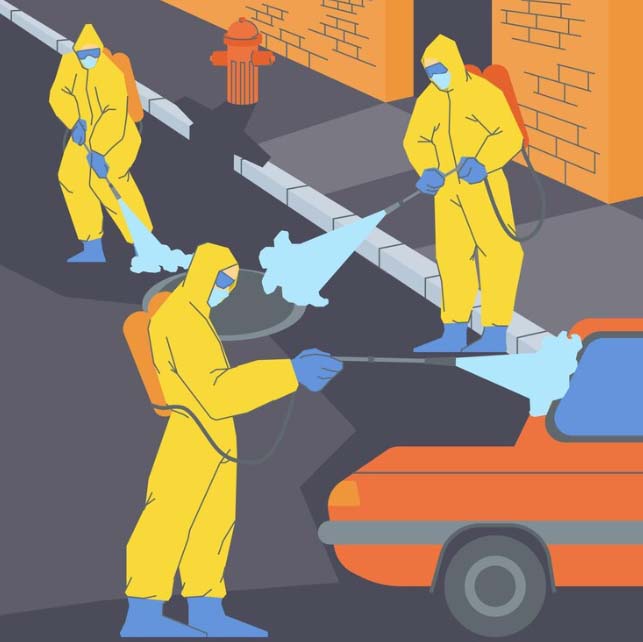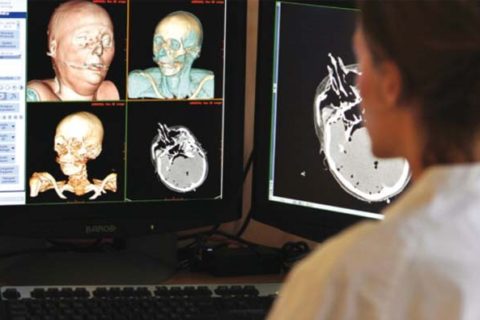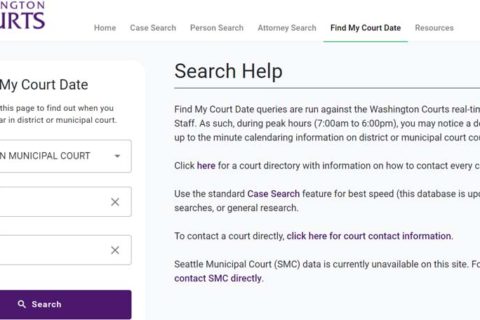Most children say doctors are their dream jobs. However, when they get older, their dreams may be changed. After watching movies with crime scenes, they may want to become a crime scene cleanup as they find a job as a crime scene cleanup to be cool and interesting.

If you are one of those people who are dreaming to be a crime scene cleaner, you should know that there are some pros and cons of being a crime scene cleaner, just like any other jobs in the world. Finding out the pros and cons of this job is recommended so that you can decide if this job is really for you or not.
Read also: Crime Scene Cleaner Requirements and Qualifications
A Few Pros of being a Crime Scene Cleaner
1. It Sharpen Your Brain and Skills
Just like crime scene investigators, being a crime scene cleanup can also sharpen your brains. When cleaning the site, you should know which one to clean and which one you should not as there are some parts that are important to be kept that way as evidence. By work hours, your skills will also get better. The often you get involved in this work, the better your skills will be.
2. It Does Not Require Formal Education
Apparently, there is no formal requirement to be a crime scene cleaner. However, there are a lot of bioremediation companies that offer OSHA training and on-the-job education sessions. There are a few training programs that may be encountered by those who want to become a crime scene cleaner. Some of them include bloodborne pathogen training; personal protective equipment (PPE) training; respiratory protection training; hazardous communication training; medical waste handling and transporting training; and neat-illness awareness training.
These followings are about the bloodborne pathogen training given by OSHA or Occupational Safety and Health Administration. Make sure to read the brief information below if you have no idea about this training.
Bloodborne pathogens refer to infectious microorganisms that are found in the blood. They are dangerous as they can cause disease in humans. For your information, these pathogens include, but are not limited to, hepatitis B virus or HBV, hepatitis C virus or HCV, and human immunodeficiency virus or HIV, the one that can cause AIDS. If a worker is exposed to bloodborne pathogens, there is a chance of them getting a serious illness or an illness that can put their life at risk.
There are a few requirements of OSHA’s bloodborne pathogen standards. All of them can be found in Title 29 of the code of Federal Regulations at 29 CFR 1910.1030. The requirements of the standard state what should be done by the employers, which is to protect all the workers who are occupationally exposed to blood or other potentially infectious materials or OPIM, as defined in the standard. It means, the standard protects every worker who can reasonably be anticipated to come into contact with blood or OPIM as a result of doing their job duties.
3. There are a Lot of Job Opportunities
A job as a crime scene cleaner is still considered rare in a lot of places. In fact, not everyone knows this job. It means the chance of you getting this job is high. Even though there are some people who know this kind of job, some of them refuse to apply to be a crime scene cleanup due to some pros. A lot of them are afraid of blood or some other things that are related to crime.
Read also:
4. It Offers a Good Amount of Salary
According to Salary.com, the salary for a crime scene cleaner job ranges from $29,791 to $35,860 per year in the United States. The highest paying cities for this job in the United States include San Jose, CA ($39,561 per year); Santa Clara, CA ($39,561 per year); Fremont, CA ($39,460); Daly City, CA ($39,403); San Francisco, CA ($39,403); Bronx, NY ($37,922); New York, NY ($37,922); and Brooklyn, NY ($37,922).
Some Cons of being a Crime Scene Cleaner
1. It Takes Too Much of Your Time
The serious cases of crime scenes usually happen outside of normal business hours. Do not get surprised if you get called back to work when you just came home after spending hours at the crime scene location.
2. It May be Competitive
While it is true that there are a lot of job opportunities for crime scene cleaners, breaking into the field can be hard because there are a lot of people who also look for the same position for each opening. The chance of getting this position will be lower in the locations that are favored by many. One of the most popular places is Austin, Texas. In Austin, Texas, about 100 people usually apply to be a crime scene cleaner. If one has the most experience, they will get chosen. Not only experience, it may also depend on luck.
3. It Can Cause Psychological Disorders
It is not easy to clean suicide, homicide, road accidents, or some other death scenes. Even for some professional technicians, there are some crime scenes that are considered too messy. One of the main jobs of a crime scene cleaner is to protect all the victims from infectious blood-borne pathogens, bodily fluids, odors and traumatic experiences. The victims and or the owners of the place usually want the crime scene cleaner to do their jobs perfectly even though the scenes are messy. Due to the high pressure and fear of the crime scene, some crime scene cleaners may develop psychological disorders such as stress, anxiety, depression and irritability. After having enough of it, it is normal for some crime scene cleaners to hand over their resignation letters, including the well-trained and vastly experienced ones.
4. It Can Risk Your Safety
Even though crime scene cleaners are usually immunized and vaccinated against hepatitis and so on, there is no guarantee that everything is 100% safe. This job comes with its own risks. Handling of perilous and infectious biological fluids can cause chronic diseases such as Hepatitis B or C and HIV/AIDS.

A bookworm and researcher especially related to law and citizenship education. I spend time every day in front of the internet and the campus library.





